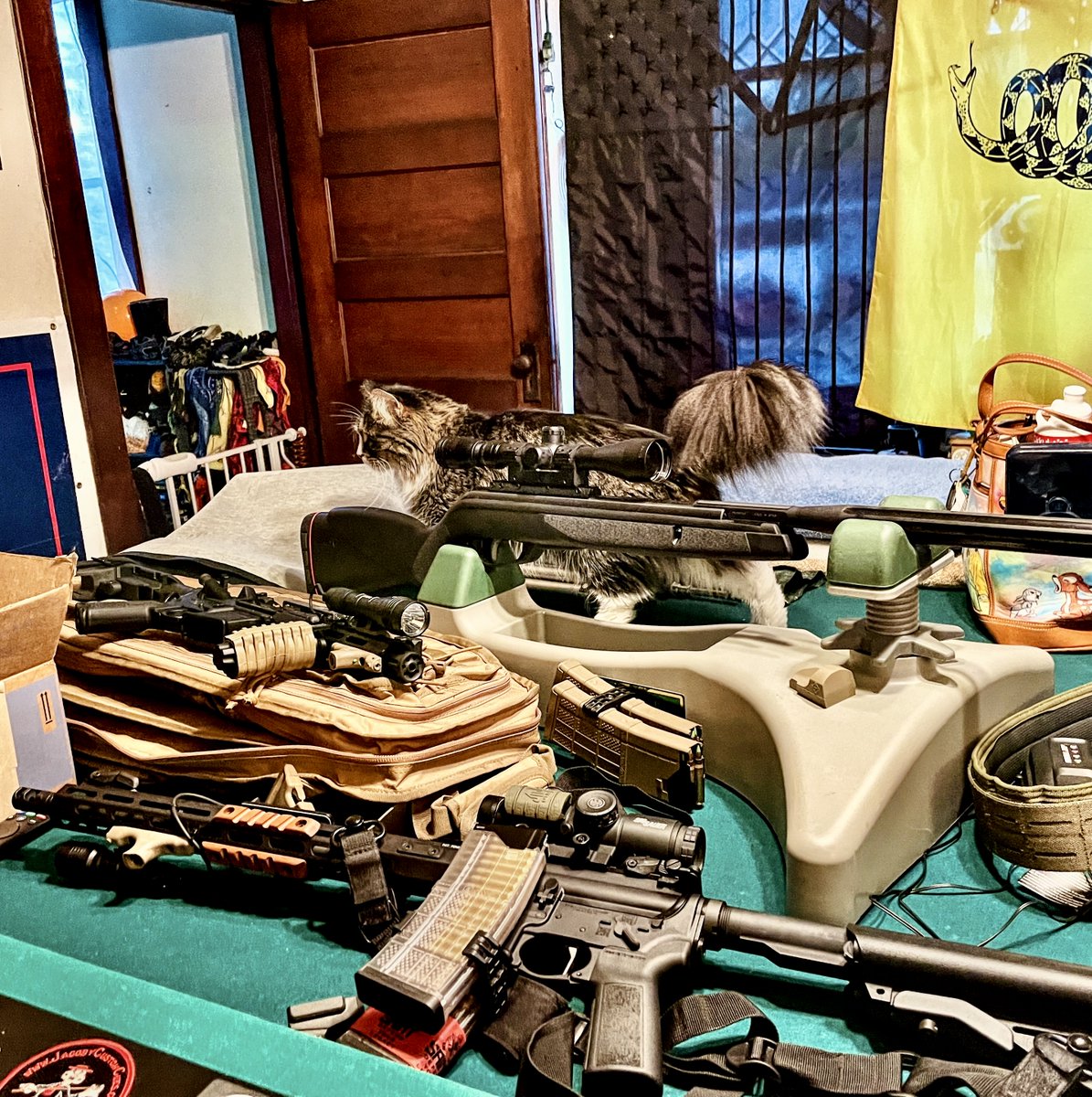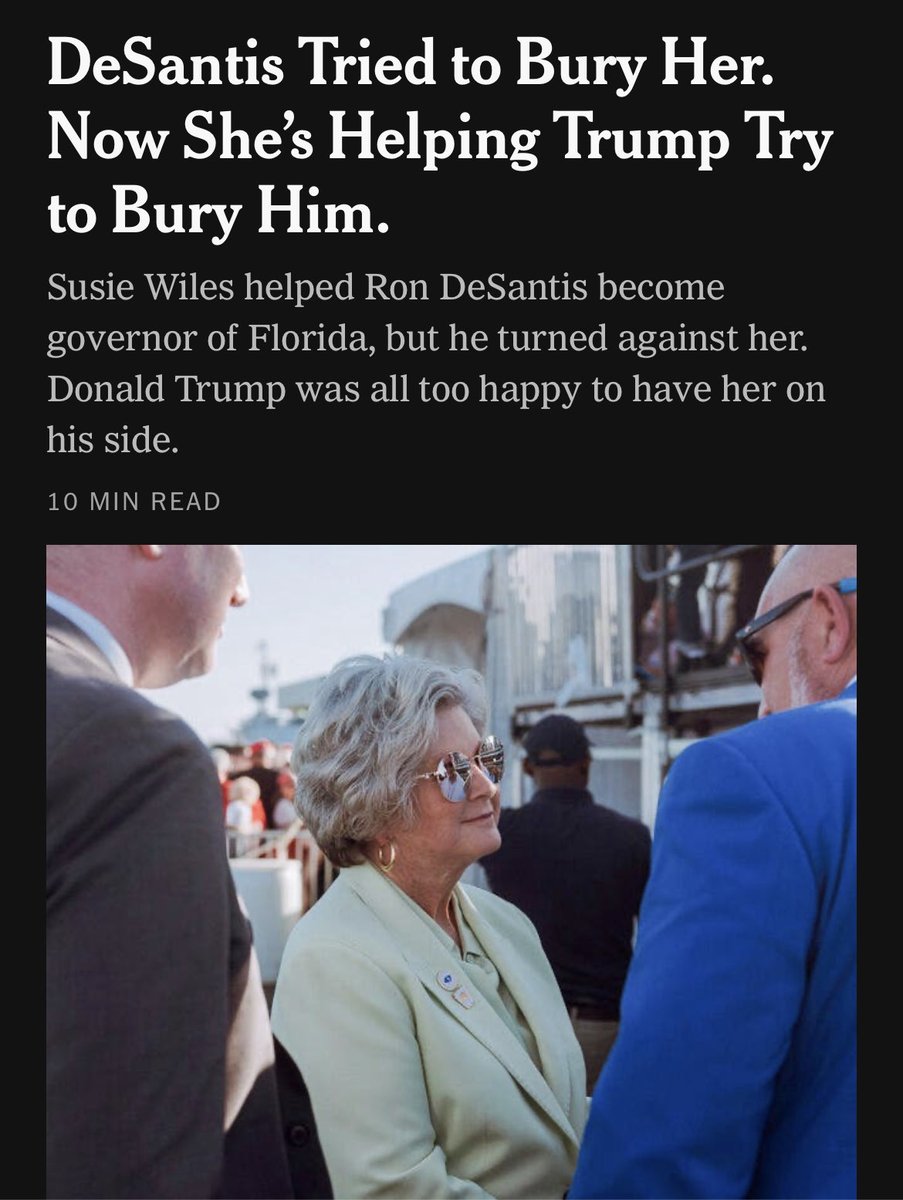When I wrote what became the first chapter of THE UNDERTOW, on Harry Belafonte, his 1959 TV special--one of the best hours of television ever made--was watchable only in an archive. Now it's on Youtube. 1/
"Tonight With Belafonte" was one of the best hours ever of broadcast television. It was also one of the most radical. 2/ 

Mr. B--Harry Belafonte--was a profoundly generous man. But he wasn't shy about his edge, and he wielded it precisely. Here he is in The Undertow telling me about how he got Odetta on primetime: 3/ 

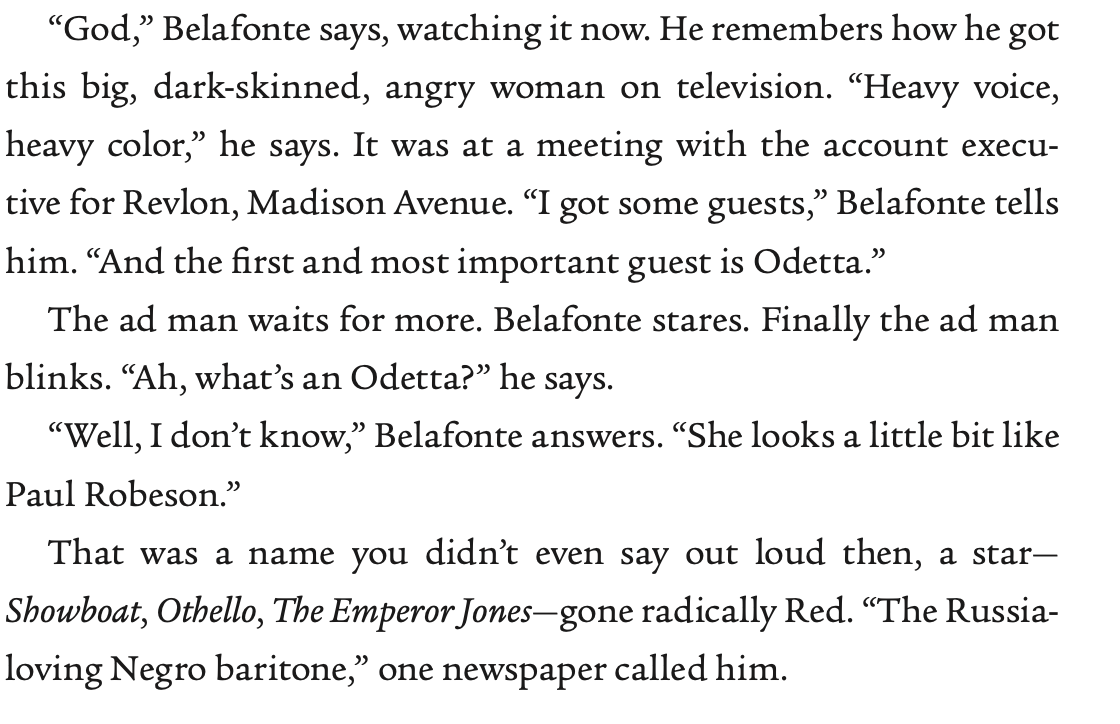
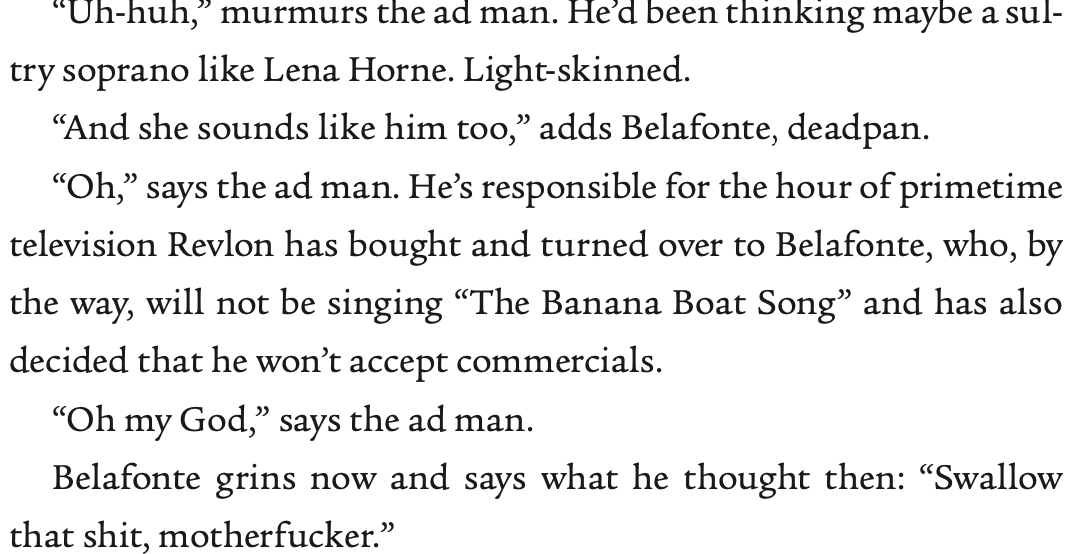
When I began writing about Harry Belafonte, he invited me to a movie--Zero Percent, on a prison college program. So I got to invite him to one, too--we screened his '59 special together at the archive. It's from a comment he made in the dark that the title of the chapter came. 4/ 

Part of what I loved about Mr. B. was the way he didn't fall for authenticity traps. He understood art is something you make your own and then pass on. Here he is telling me about discovering Leadbelly's music in the Library of Congress. 5/ 

Belafonte picked up his most famous song, "Day-O," on the Jamaican docks. I opened my creative writing class this morning w/ it. Students all recognized it, none knew Belafonte, all thought it sort of a kids' song. It's a radical song. Here's how Mr. B. explained it: 6/ 
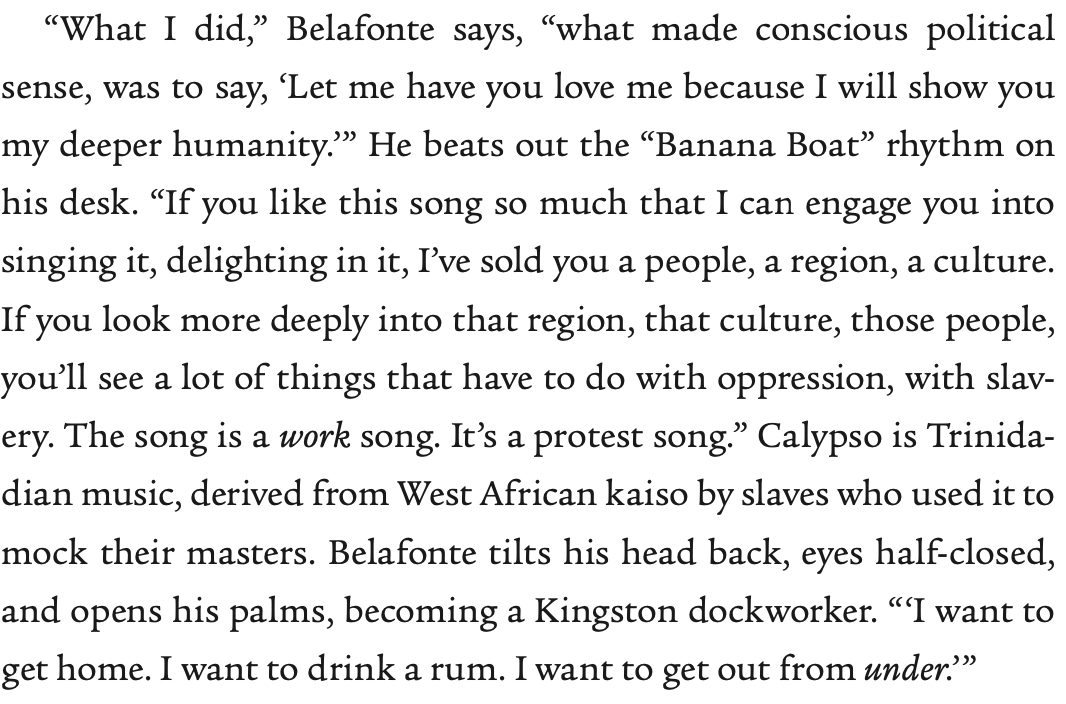
Not enough people know what an absolutely crucial roll Belafonte played in the civil rights movement, as both a kind of bank and a confidante to King. A man King could laugh with: 7/ 

Mr. B. wasn't a saint. Didn't believe in saints. Had no time for the Hollywood version of the Civil Rights Movement. He knew the struggle is long, and not over. 8/ 
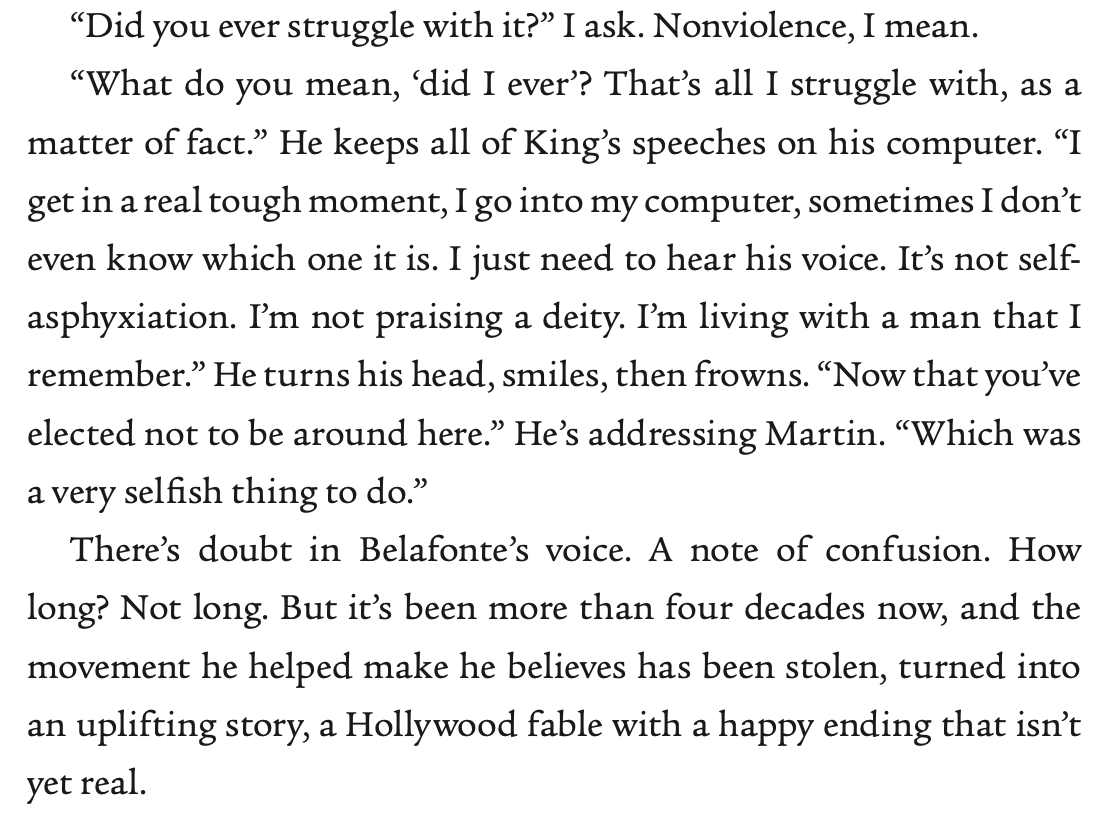
I begin The Undertow with my story of Mr. B. for its hope. That hope isn't any kind of cheap grace. It's not the hope that comes from winning but from staying in the struggle despite the losses. The hope we need. 9/9 
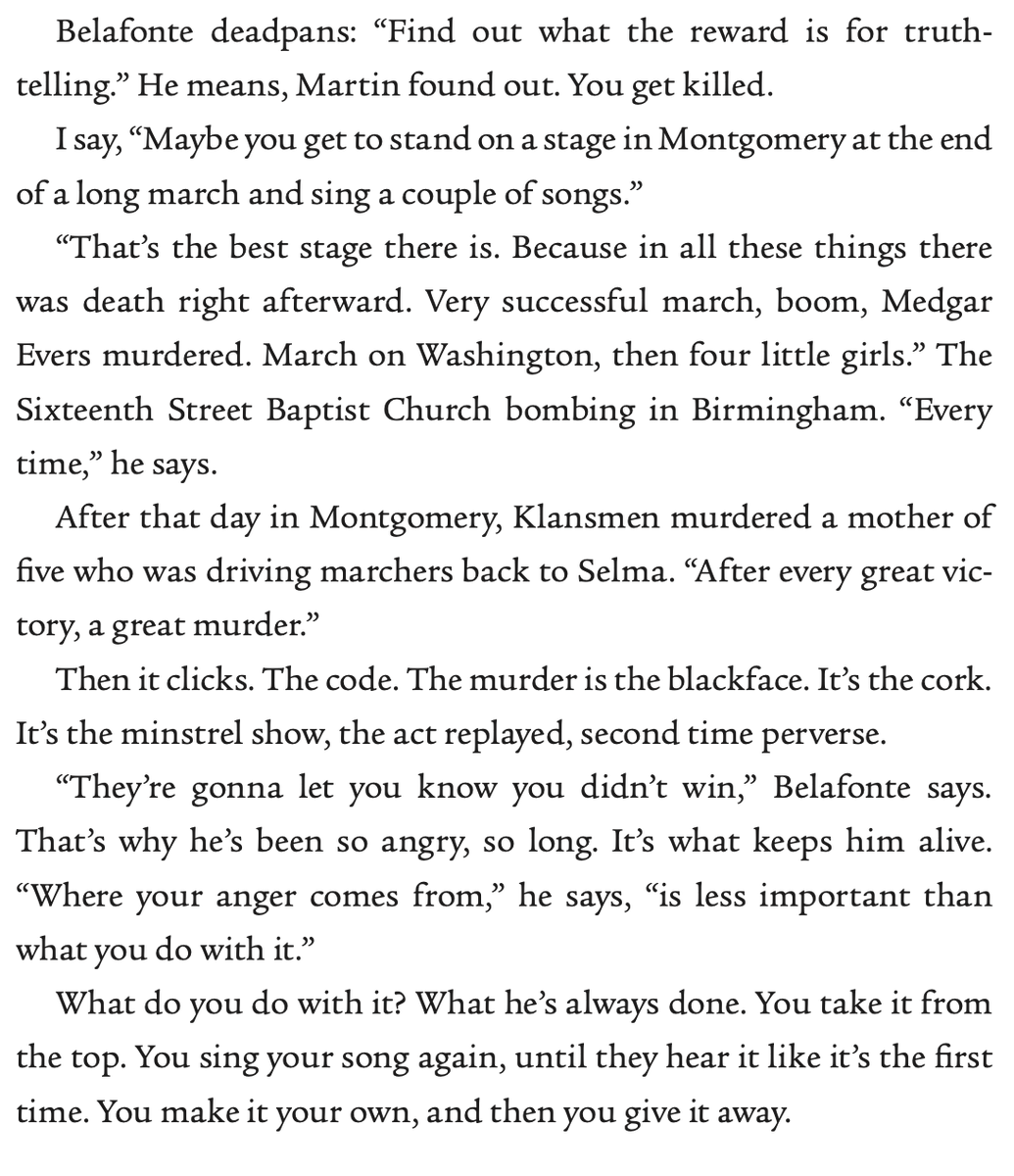
• • •
Missing some Tweet in this thread? You can try to
force a refresh

 Read on Twitter
Read on Twitter

